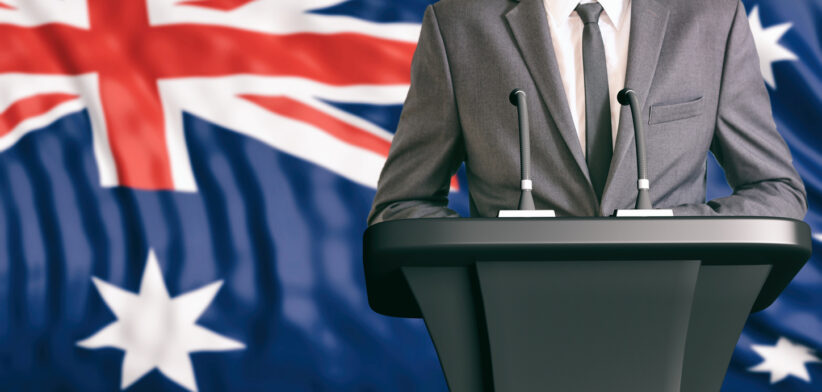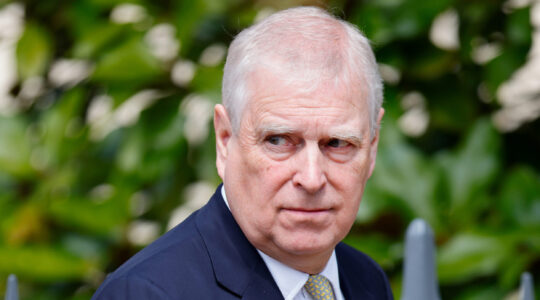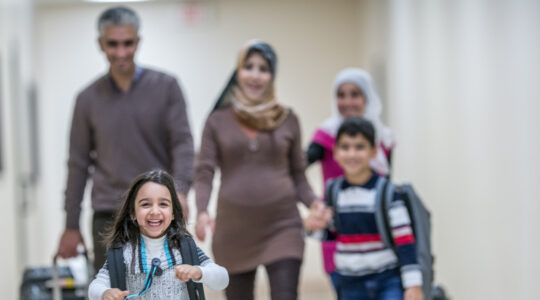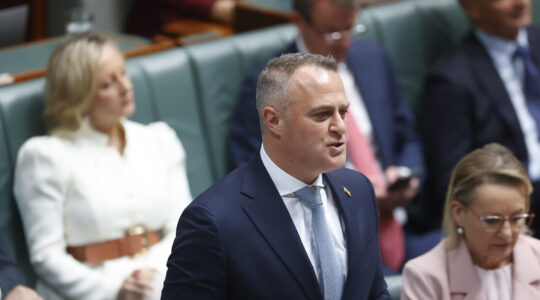By Michelle Grattan
The election’s first debate, on Sky News on Tuesday night, was disappointingly dull. Viewers who’d been following the campaign would have learned little. There was minimal spontaneity.
Among the 100 undecided voters in the room, 44 said Anthony Albanese won, 35 thought Peter Dutton came out ahead and 21 were undecided.
Both camps will be satisfied, because each leader’s main aim was to avoid disaster. A bad mistake, an undisciplined moment, can sour the following day.
The Liberals will be especially relieved. After difficult days for Dutton, with Trump wading into the campaign and the fiasco over the work-from-home policy, the Opposition Leader needed to perform creditably. He did that, with commentators scoring the result variously (in some cases in line with the scorer’s political leaning).
Dutton was under added pressure – just before the two men faced off he learned his father Bruce had been taken to hospital.
Both leaders were well prepared, and carefully polite. Questions canvassed the “Trump pandemic”, education, health, cost of living, immigration, Albanese’s tax cuts, Dutton’s fuel excise promise, and Gaza.
When moderator Kieran Gilbert asked audience members to raise their hands if they were “doing it pretty tough” about half did so.
Albanese seemed to have more material to work with and made sure he homed in on Dutton’s nuclear policy and his time as health minister.
Naturally, we saw Albanese’s well-worn Medicare card again.
The PM dodged an awkward reference to NSW premier Chris Minns’ returning public servants to the office, pivoting to Dutton’s dumping his working from home policy. “Peter hasn’t been able to stand up for his own policy, so I don’t know how he can stand up for Australia.”
Albanese had a good zinger countering Dutton’s spiel on gas: “The only gas policy that the Coalition have is the gaslighting of the Australia public.”
Dutton had a cut-through point on the PM’s promise to subsidise solar batteries. “He’s asking you to provide a subsidy or to support a subsidy for people on higher incomes like me to buy a battery at a subsidised price and I don’t believe that’s fair.”
Rather bizarrely, the Coalition used the cover of the debate to release its delayed modelling for its gas reservation policy, sending it out just as the debate started, embargoed until its finish.
“Modelling conducted by Frontier Economics has concluded that the Coalition’s National Gas Plan will see a 23 percent reduction in wholesale gas prices,” the statement said. This would progressively mean
- 15 percent reduction in retail gas bills for industrial customers
- 7 percent reduction in retail gas bills for residential customers
- 8 percent reduction in wholesale electricity prices
- 3 percent reduction in residential electricity prices.
Australian election debates are punctuation points in the campaign. They don’t necessarily carry much weight, although they can affect a candidate’s immediate momentum.
Ian McAllister, director of the ANU’s Australian Election Study, says fewer and fewer people are watching these debates. In 1993, about seven in ten voters watched; in 2022 only a third did.
McAllister also says our debates are low grade compared to some overseas. For example, in France, the two candidates sit across from each other, with two moderators and “go for it”. In Australia, debates are “stylised” and the candidates rely heavily on prepared answers.
Winning or losing the debates is not necessarily a guide to the election result. As the table shows John Howard performed better in elections than in debates.
Michelle Grattan is a Professorial Fellow at the University of Canberra. This article was first published by The Conversation website.








